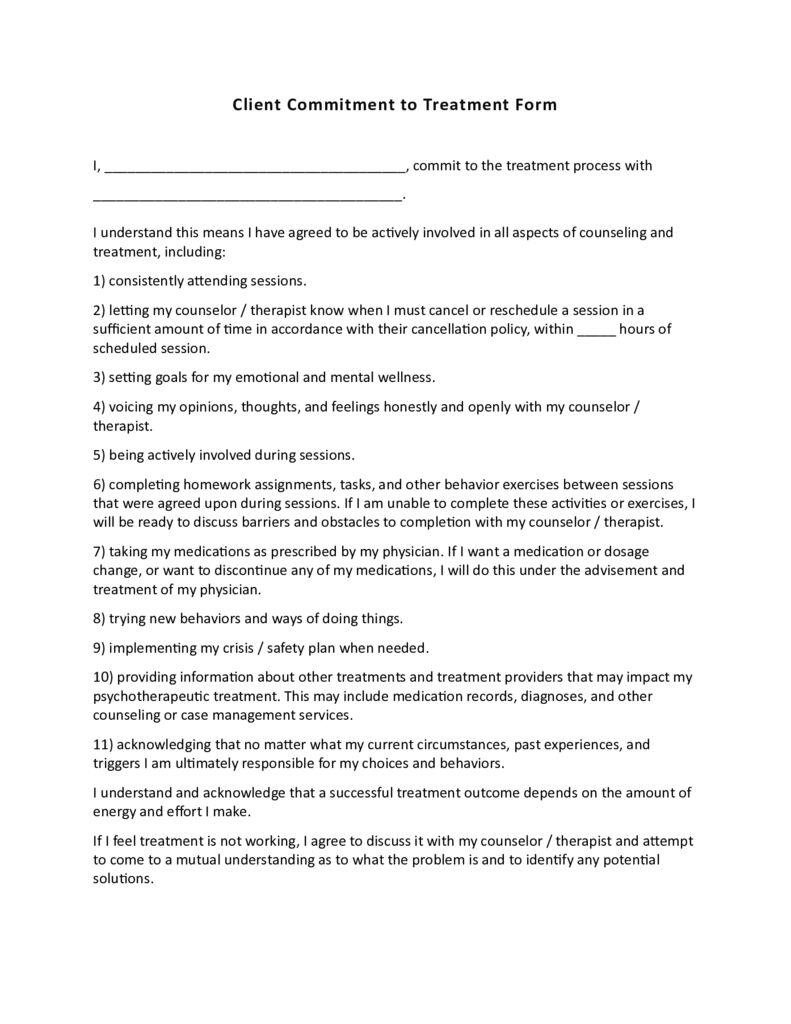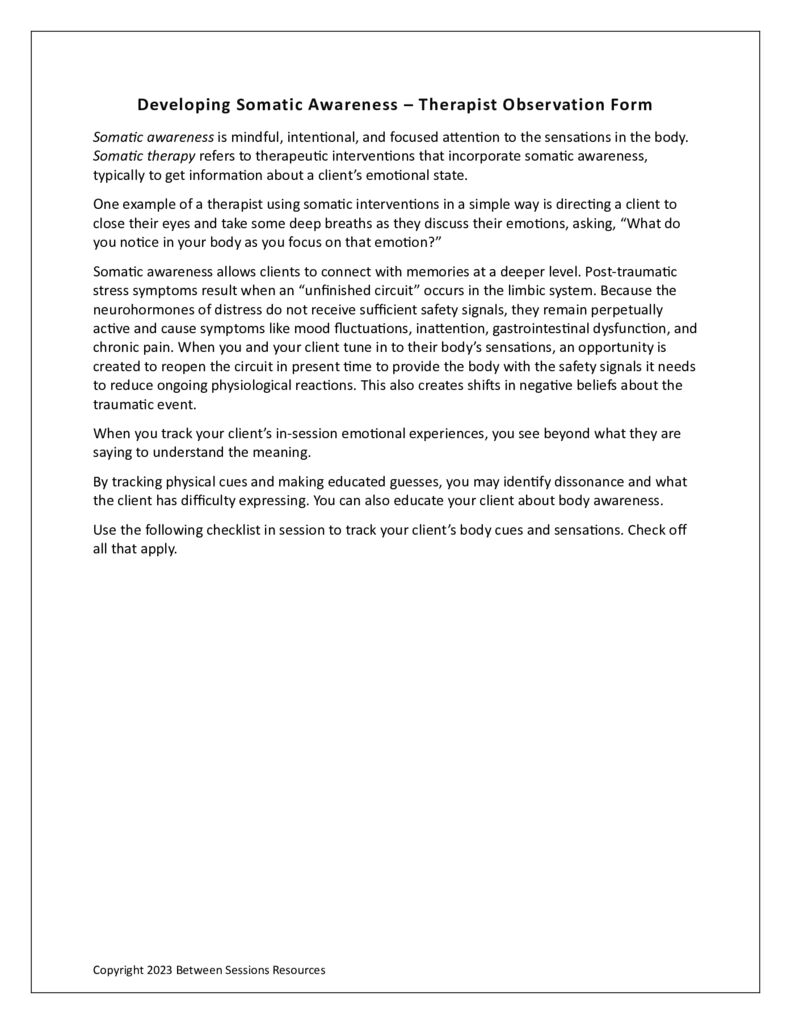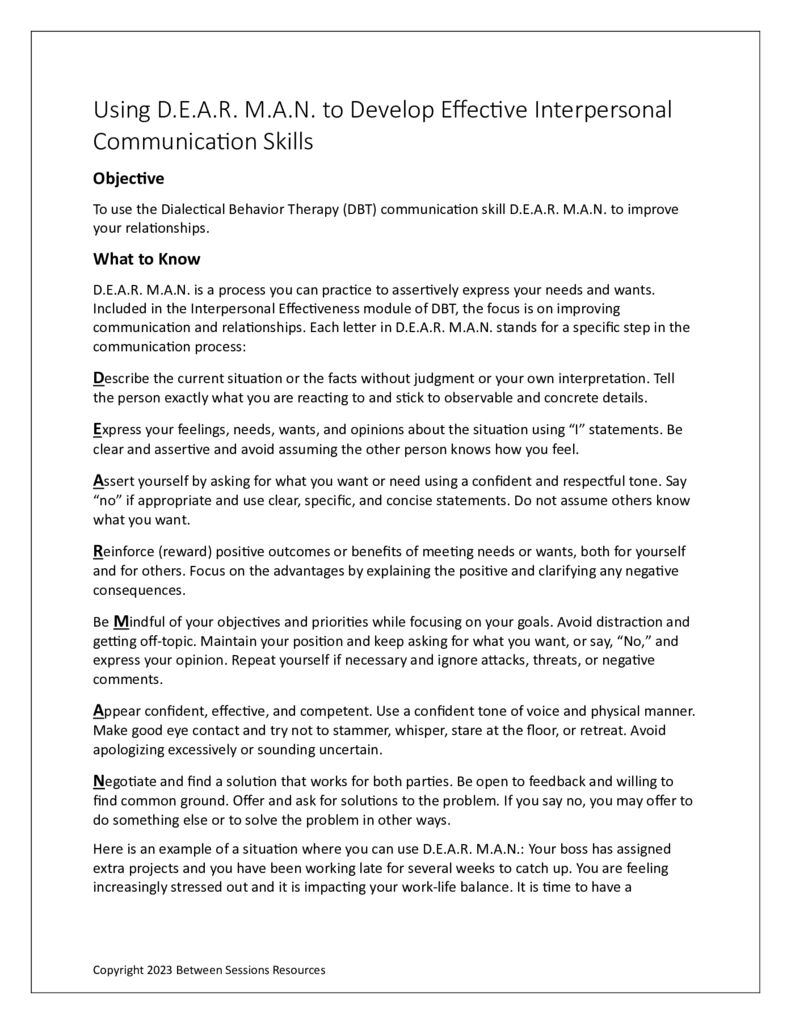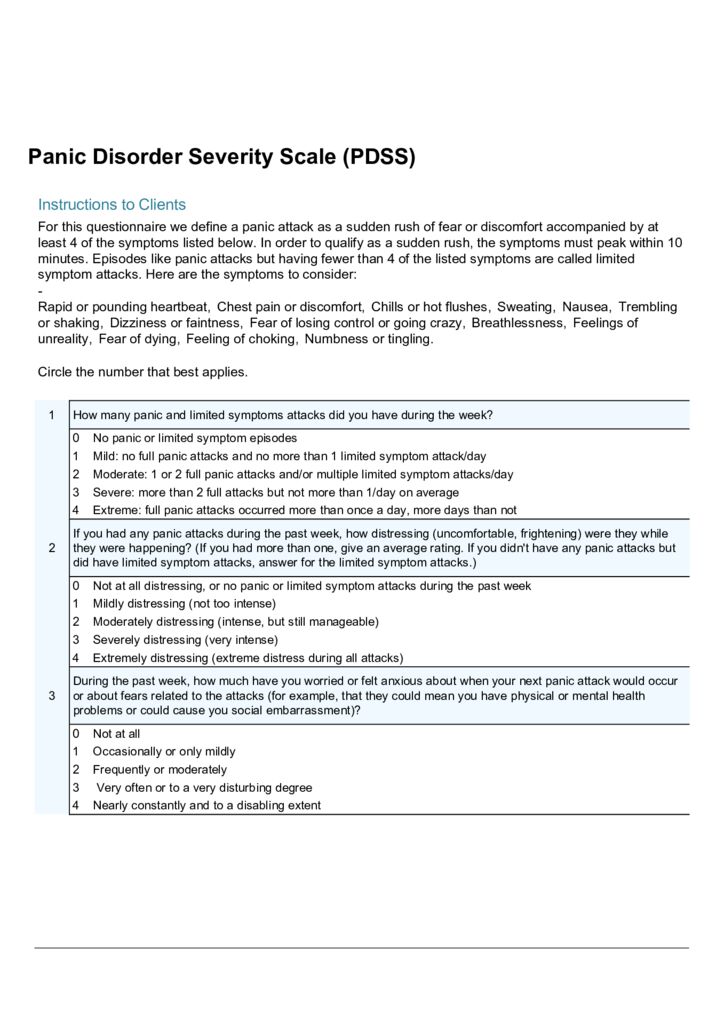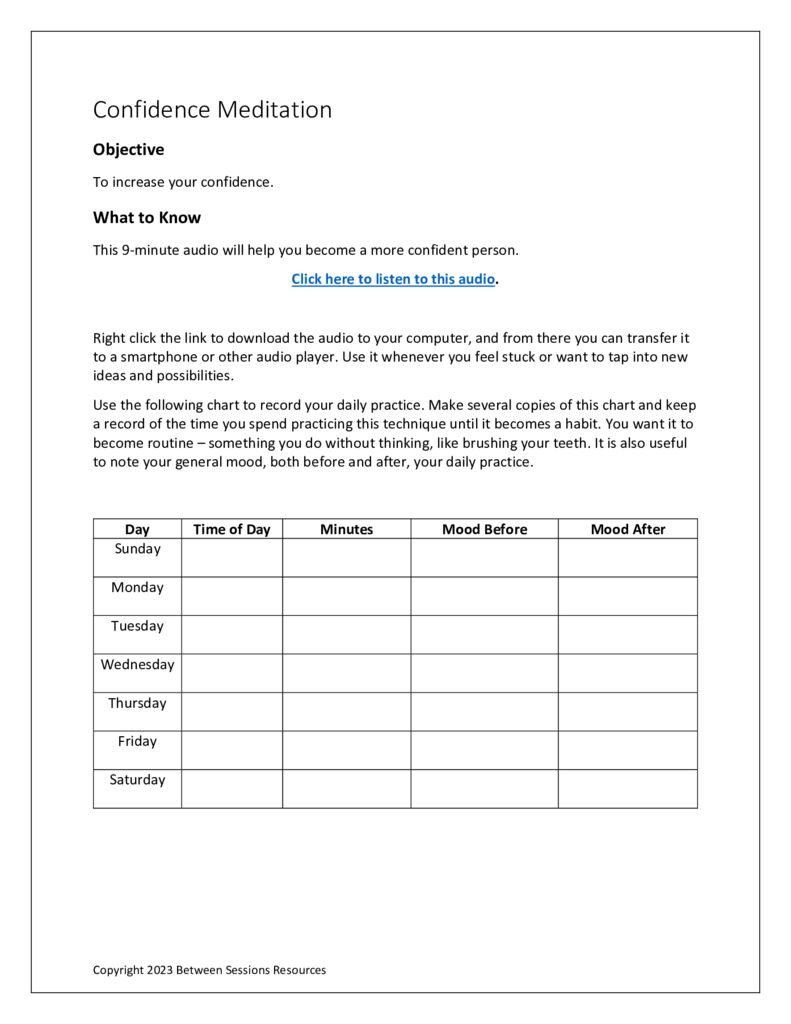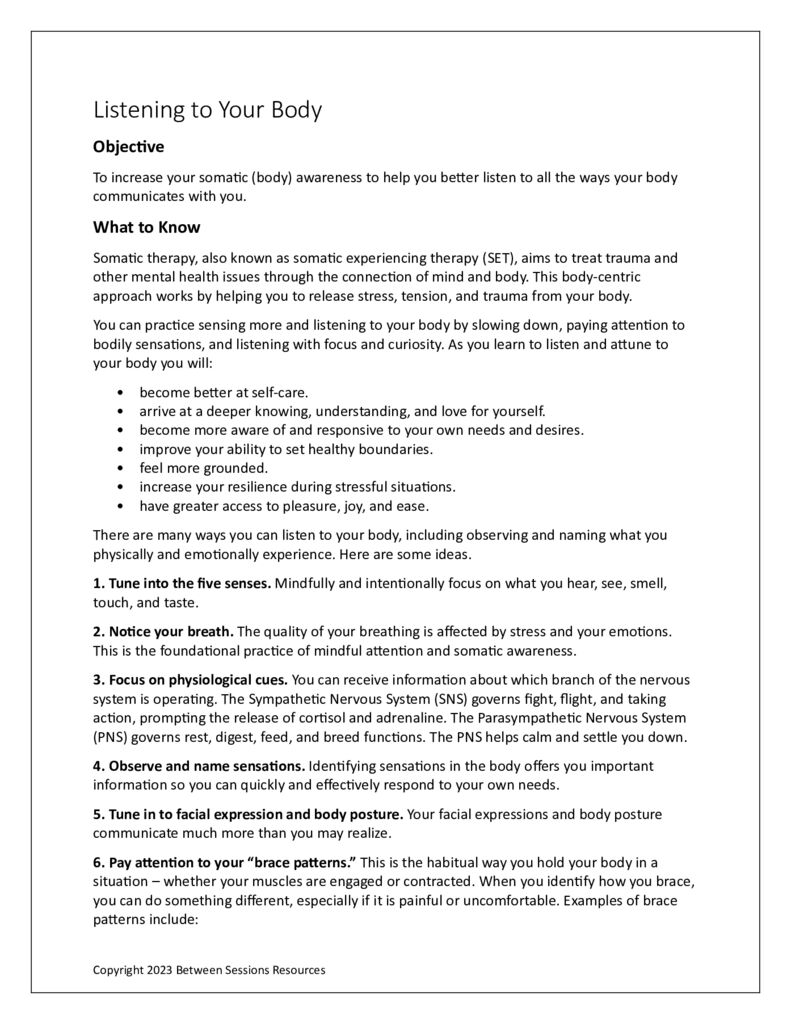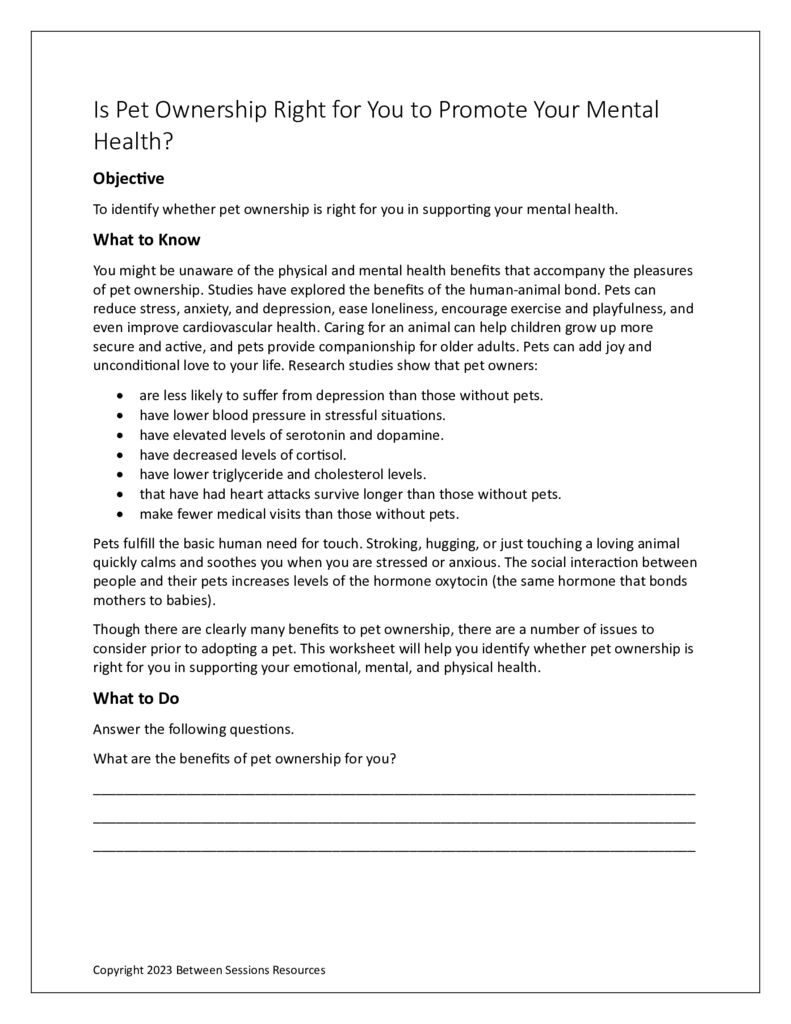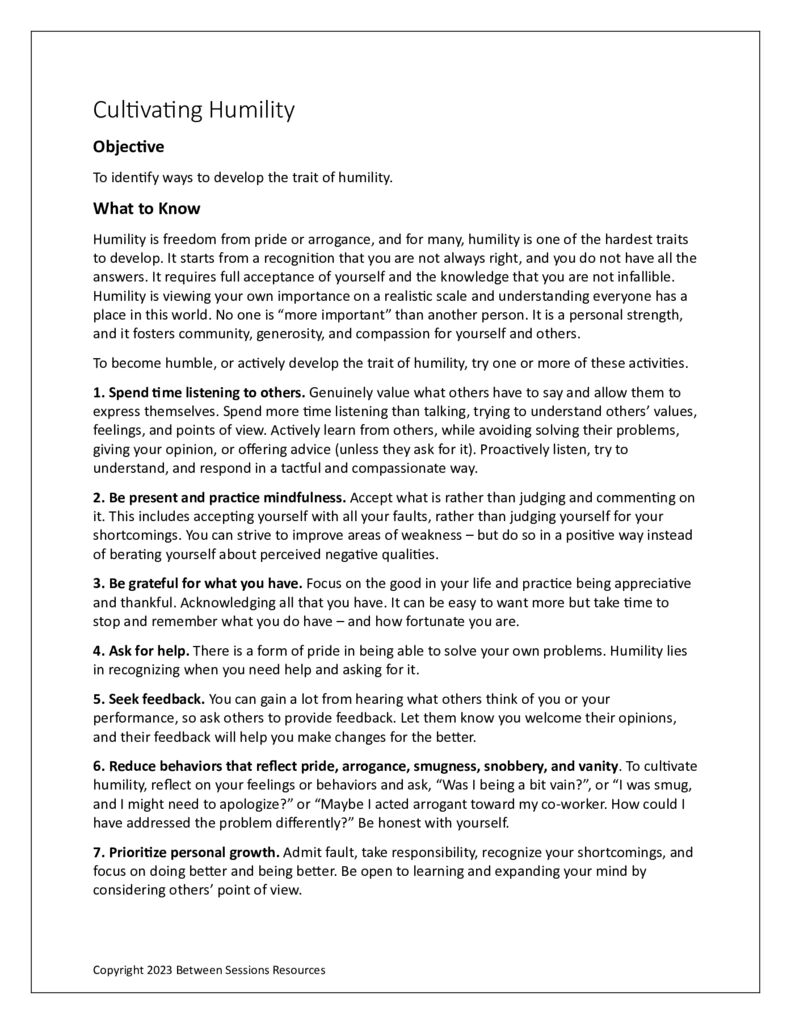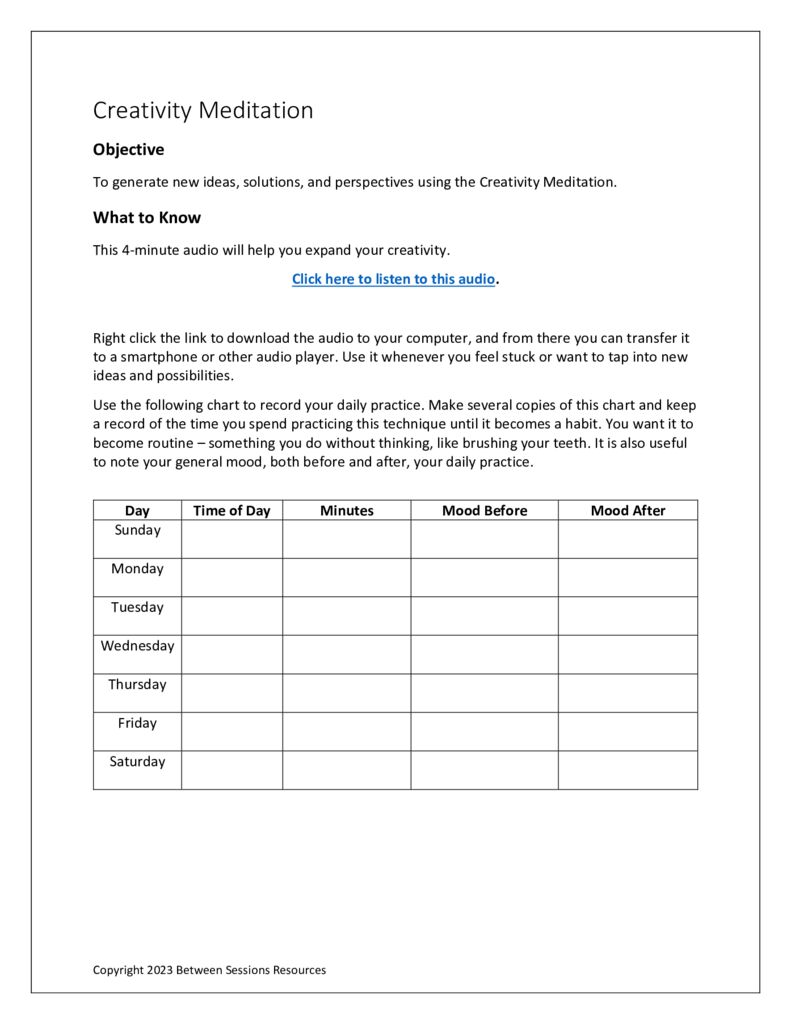Studies tell us that when professionals prescribe therapeutic homework, clients report significantly better outcomes. Our worksheets are derived from evidence-based therapies, and they are designed by experienced professionals. Use the navigation links on the left of this page to view tools in a specific category. Or use the search box at the top of this page to find the exact tool you are looking for.
To modify the tools, click the ‘Send to Client’ button by each tool to open the Psychology Forms Filler. You can then edit the tool as you see fit and either print it out or send it to a client to be filled out online. Click here for a tutorial on using the Psychology Forms Filler.
If you can’t find what you are looking for on this site, please let us know by
clicking here and our team of writers, graphic artists, and therapists will custom-design it for you.
This form is intended to help understand that therapy can only be successful when they commit to the process. The contract format spells out specific behaviors expected from the client like showing up at sessions on time, trying new behaviors, using a safety or crisis plan when needed, and so on. (0423, contract for therapy services, commitment, motivation)
This worksheet teaches people about three systems: the sympathetic nervous system, the parasympathetic nervous system, and the social engagement system. A chart is used to help people identify how they activate each system to develop positive health habits. (0423, trauma, PTSD, body awareness, somatic learning)
Somatic awareness is mindful, intentional, and focused attention to the sensations in the body. This checklist allows therapists to check a client’s body cues and sensations while they are in session. Areas include posture, areas of tension, eyes, facial, expression, gestures, movement, voice, speech, breath, and general presence. There are also areas to help observe for hyper-arousal and hypo-arousal as revealed by body cues. (0423, assessment, somatic, body awareness, non-verbal)
This technique from Dialectical Behavior Therapy (DBT) teaches people a 7 step technique to be more assertive in social relationships. (0423, DBT, relationships, assertive, interpersonal effectiveness)
This 7-item assessment tool is designed to be a quick way for clinicians to measure the severity of panic attacks. Please note that the first two ages should be given to the client and the third page is for the clinician. (0423, anxiety disorder, panic attacks, assessment)
This eight-minute audio focuses on helping people become more confident. It is recommended that people listen to it every day for a week. A chart is included to help people keep track of their listening habits and rate their moods before and after listening to the audio. (0423. anxiety, shyness, depression)
This worksheet is designed to help people become more aware of the mind-body connection. It provides people with eight techniques to become more aware of their bodies, from observing and naming their body sensations to exploring their environment with all their senses. A series of questions and a chart help people identify the “story” their bodies are telling them. (0423, trauma, somatic experiencing therapy, PTSD)
Owning a pet can be beneficial to a person’s mental and physical health. But pet ownership comes with responsibilities and is not right for everyone. This worksheet is designed to help people explore how owning pet might affect their lives before they make this commitment. (0423, pet therapy, depression, oxytocin)
This worksheet is designed to help people become more humble to gain social acceptance. It includes seven strategies to help people who have a problem with arrogance and vanity. Questions are designed to help people explore the importance of having a self-image that takes into account reactions of others. (0323. relationships, social skills)
This four-minute audio meditation is designed to stimulate problem-solving and creativity. (0323, problem-solving, stuck, stress reduction)

